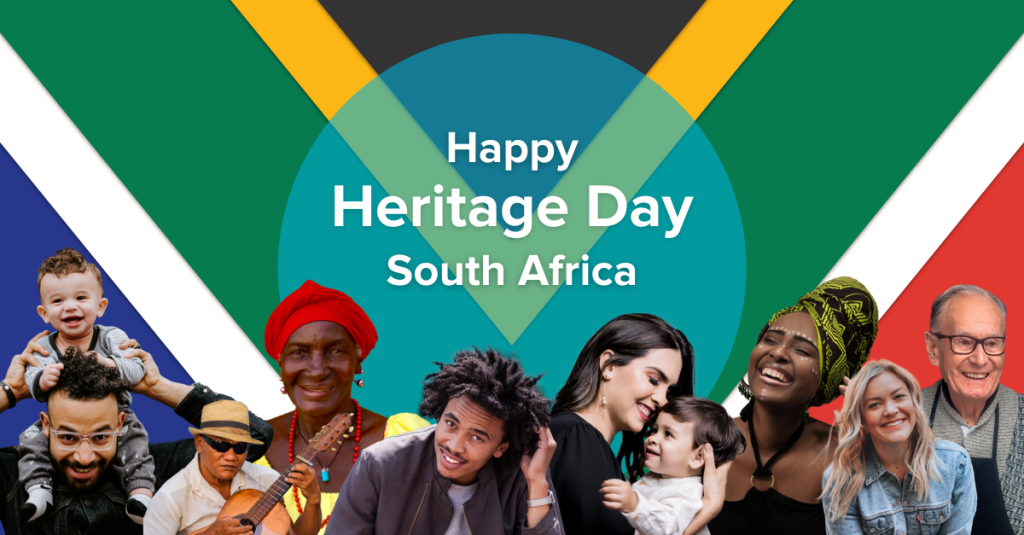Why Heritage Matters: Lessons From the Past for the Future emphasizes the crucial role that our cultural heritage plays in shaping the present and guiding us into the future. By examining how our history informs our identities, values, and societal practices, we gain a deeper appreciation for the significance of preserving diverse cultures. As we navigate a rapidly changing world, understanding our heritage becomes essential not only for personal growth but also for fostering global connections and respect among different communities.
Through the lens of anthropology, which explores human cultures and societies, we can uncover the intricate tapestry of traditions, languages, and practices that define us. Branches like cultural and linguistic anthropology highlight the nuances of social norms and communication, while archaeological studies remind us of the civilizations that came before us. As we reflect on these lessons, it is vital to consider how they can inform our approach to contemporary issues like globalization, climate change, and cultural preservation.
Welcome, dear readers, to another intriguing exploration of the diverse field of anthropology! Today, we’ll delve into the captivating realms of human societies, cultures, and their evolution over time. Anthropology, often regarded as the study of humanity, encompasses a broad spectrum of sub-disciplines, including cultural anthropology, archaeological anthropology, linguistic anthropology, and biological anthropology. Each of these branches offers unique insights into our existence, shaping our understanding of what it means to be human.
A Brief Overview of Anthropology
At its core, anthropology seeks to answer fundamental questions about human life: Who are we? Where do we come from? How do our cultures shape our identities? By employing a holistic approach, anthropologists study humans in all aspects—our behaviors, beliefs, and social structures. This multi-faceted discipline not only looks at historical patterns and artifacts but also engages with contemporary issues affecting societies around the globe.
The Different Branches of Anthropology
Let’s take a closer look at the four main branches of anthropology:
- Cultural Anthropology: This branch focuses on understanding the cultural variations among humans. Cultural anthropologists immerse themselves in the daily lives of communities, participating in their customs and rituals. Through ethnographic studies, they gain insights into social norms, values, and practices, revealing how culture shapes human behavior.
- Archaeological Anthropology: Archaeologists study past human societies through material remains. By excavating sites and analyzing artifacts, they reconstruct histories and understand how ancient cultures lived and interacted. This branch sheds light on human innovation, migration, and the transformation of societies over time.
- Linguistic Anthropology: Language is a crucial aspect of human culture, and linguistic anthropologists explore how it influences social life. They study language use within specific cultures, examining how it shapes identity, power dynamics, and communication. This branch highlights the importance of language in expressing cultural nuances and preserving heritage.
- Biological Anthropology: Also known as physical anthropology, this branch focuses on the biological aspects of humans. It examines human evolution, genetics, and our interactions with the environment. Biological anthropologists study the physical variations among populations, understanding how our biology influences culture and vice versa.
The Importance of Fieldwork in Anthropology
Fieldwork is the cornerstone of anthropological research. It involves living and interacting with the community under study, an approach that allows anthropologists to gather first-hand information and insights. Immersion in a community provides a deeper understanding of cultural practices and social dynamics. This makes anthropology distinct from many other disciplines, as it emphasizes experiential learning and firsthand observation.
Consider the case of an anthropologist researching a remote tribe. Rather than relying solely on second-hand accounts or existing literature, they would live among the tribe, partake in rituals, and build relationships with community members. This process not only enriches their understanding but also fosters trust and rapport with the people they study. Such relationships are crucial for obtaining accurate data and insights.
Current Trends in Anthropology: Why Heritage Matters: Lessons From The Past For The Future
As our world evolves, so does the field of anthropology. Here are some current trends shaping anthropological research:
- Globalization: The impacts of globalization are profound, leading anthropologists to explore how cultures adapt to a rapidly changing world. Studies often focus on issues such as migration, cultural exchange, and the effects of technology on traditional lifestyles.
- Environmental Anthropology: With growing concerns about climate change, environmental anthropologists examine the relationships between humans and their environments. They study how cultural practices influence ecological sustainability and how communities respond to environmental challenges.
- Medical Anthropology: This subfield investigates how cultural beliefs and practices influence health and healthcare. Medical anthropologists study issues such as access to healthcare, traditional healing practices, and the social determinants of health.
Engaging with Communities
One of the most rewarding aspects of anthropology is the opportunity to engage with diverse communities. Anthropologists often serve as bridges between cultures, fostering understanding and collaboration. By sharing their findings with the communities they study, they not only validate the experiences of their subjects but also contribute to broader dialogues about cultural preservation and social justice.
Challenges in Anthropology
Despite its many rewards, anthropology is not without its challenges. Ethical considerations are paramount, especially when researching vulnerable populations. Anthropologists must navigate issues of consent, representation, and the potential impact of their work on communities. They strive to conduct research that is respectful, equitable, and beneficial to the populations they study.
Conclusion
Anthropology is an ever-evolving field that offers invaluable insights into the tapestry of human existence. By examining cultures, histories, and biological aspects of humanity, anthropologists play a crucial role in understanding the complexities of our world. As we continue to grapple with global issues, the insights provided by anthropologists can guide us toward greater empathy and understanding. So, whether you’re a seasoned anthropology enthusiast or just curious about the field, we encourage you to explore the rich narratives that shape our humanity.
Thanks for joining me on this exploration of anthropology! Let’s keep the conversation going. What anthropological topics intrigue you the most? Share your thoughts in the comments below!
Essential Questionnaire
Why is cultural heritage important?
Cultural heritage is vital as it connects individuals to their history, fosters a sense of identity, and promotes community cohesion.
How can we preserve our heritage?
Preservation can be achieved through education, documentation, community engagement, and supporting cultural initiatives.
What role does anthropology play in understanding heritage?
Anthropology provides insights into human behavior, cultural practices, and the significance of heritage in societal development.
How does globalization impact cultural heritage?
Globalization can lead to cultural homogenization, but it can also create hybrid cultures that blend different traditions.

What are some examples of cultural preservation efforts?

Examples include UNESCO World Heritage Sites, indigenous cultural revitalization programs, and local arts initiatives.
Tinggalkan Balasan